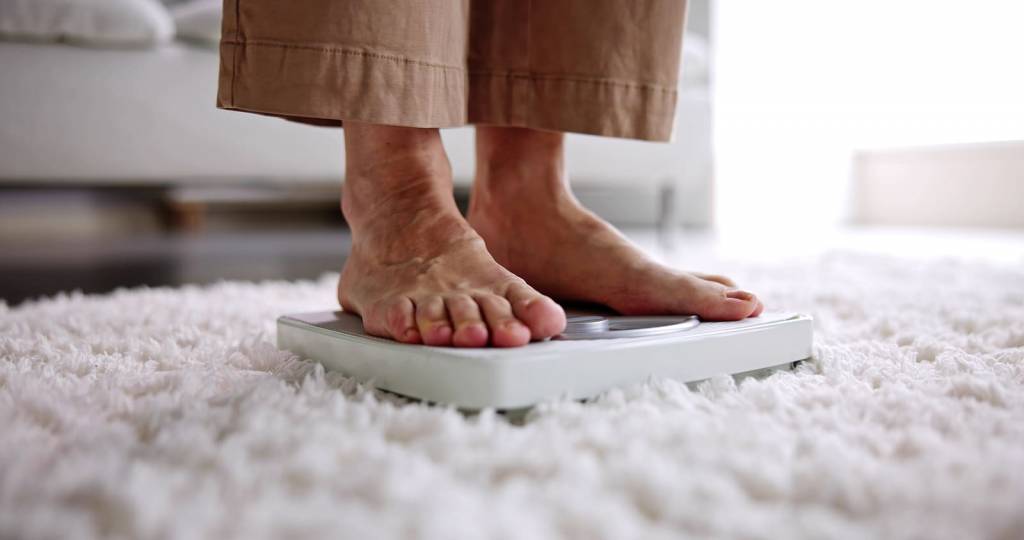
The intricate connection between thyroid gland disorders, body weight, and metabolism has long been debated. This blog discusses the relationship between hypothyroidism and weight gain as well as how to control your weight more effectively with food, medication, and other healthy lifestyle choices.

Understanding the relationship between weight gain and hypothyroidism
Thyroid disease-related difficulties with weight loss are a common complaint among those who have the condition. Well, having thyroid problems can make losing weight quite difficult. Even with a good diet and regular exercise, an underactive thyroid, sometimes called hypothyroidism, slows your metabolism and can cause you to gain weight. You may have symptoms such as sadness, constipation, exhaustion, nausea, and coldness if you have thyroid gland dysfunction. While weight gain appears to be one issue that causes serious distress, the symptoms of hypothyroidism can affect many parts of life.
The thyroid significantly affects metabolism. You acquire weight when your metabolism slows down due to an underactive thyroid gland. The thyroid disease is usually identified in maturity, affects women significantly more frequently than men, and gets worse with age. Based on available data, around twenty percent of American women experience thyroid disorders by the time they are sixty years old. Nonetheless, a lot of women came to terms with the fact that lifestyle modifications and proper hypothyroidism therapy aid in weight management. It might be difficult to maintain a healthy weight with hypothyroid. Hyperthyroidism, or an overactive thyroid, can occur in certain persons. Here, the thyroid gland overproduces thyroid hormone compared to what the body needs.
Treatment for hyperthyroidism involves different medications than treatment for hypothyroidism. Doctors do, however, urge patients with both thyroid conditions to increase their exercise and reduce their food intake. Some dietary innovations may be advantageous, particularly for those who are hypothyroid.
Let’s have a look at some of them:
What to eat if you have hypothyroidism
There is no diet for hypothyroidism, but healthy eating habits help you lose extra weight if you have impaired thyroid function.
1. Increase fibre intake:
Eating more fibre-rich foods, berries, and whole grains can have numerous health benefits with hypothyroidism:
Makes you feel fuller faster:
It takes longer to digest fibre, and even a very less amount of fibre-rich food can make you feel full. This helps one to lose weight over the long term.
Prevent constipation:
An underactive thyroid gland slows digestion, contributing to chronic constipation. Adding more fibre to your diet can help keep your bowel movements regular.
Control blood sugar:
As mentioned above, it takes longer to digest high-fibre foods, and the sugar in the food takes more time to reach the blood. This helps to control blood sugar levels.
Lower cholesterol:
People with thyroid problems can have increased cholesterol levels. A high-fibre diet can help deal with high cholesterol levels.
2. Eat more vegetables and fruits
Eating a diet rich in colourful fruits and green vegetables can be extremely helpful for someone with hypothyroidism. Vegetables have low calories, so you can eat as much as possible to feel full without contributing to weight gain. According to research studies, eating a diet high in fruits and vegetables help protect against cellular damage in those who have hypothyroidism, thus slowing the progression of the disease.
3. Pick a high-quality protein
Lack of protein can affect thyroid function, ultimately leading to an underactive thyroid. Hence, getting enough protein can help reduce the risk of developing hypothyroidism. Protein is believed to increase metabolism and reduce hunger. Eating good quality protein can help you burn calories and reduce the desire to overeat.
4. Binge on healthy fats
Avoiding unhealthy fat sources like deep-fried foods and processed oils is extremely important. At the same time, eating healthy fats is important if you have hypothyroidism. Healthy sources of fats include nuts (brazil nuts and walnuts), seeds (Flax and chia), and Coldwater wish (salmon and tuna). Like fibre and protein, healthy fats can help you feel fuller for longer. Healthy fats also contain nutrients. Brazil nuts carry selenium which is crucial for healthy thyroid function.
5. Incorporate whole grains in your diet
Wheat bread, popcorn, and brown rice provide enough fibre, vitamins, and minerals for optimal health. It takes longer to digest whole grains than simple carbohydrates like white rice and white bread. And this is the reason why whole grains keep you fuller for longer. Simple carbohydrates add up to many calories and offer few nutrients. Make sure you consume it in moderation.

Medicinal treatment for hypothyroidism
Early signs and symptoms of hypothyroidism include weight gain and fatigue. Hashimoto’s thyroiditis and iodine deficiency are common hypothyroidism causes. For many people, hypothyroidism medications may help reduce or alleviate symptoms. The thyroid condition is best treated with levothyroxine. The thyroid tablets are formulated to return adequate thyroid hormone levels to your bloodstream. In most cases, patients must remain on this hypothyroidism treatment for their entire life. However, the amount of thyroid medication you take may need to be adjusted, especially if you have Hashmito’s thyroiditis.
Takeaway!
There is no hypothyroidism diet, but these above healthy eating tips can help you manage weight if you have weak thyroid function.





